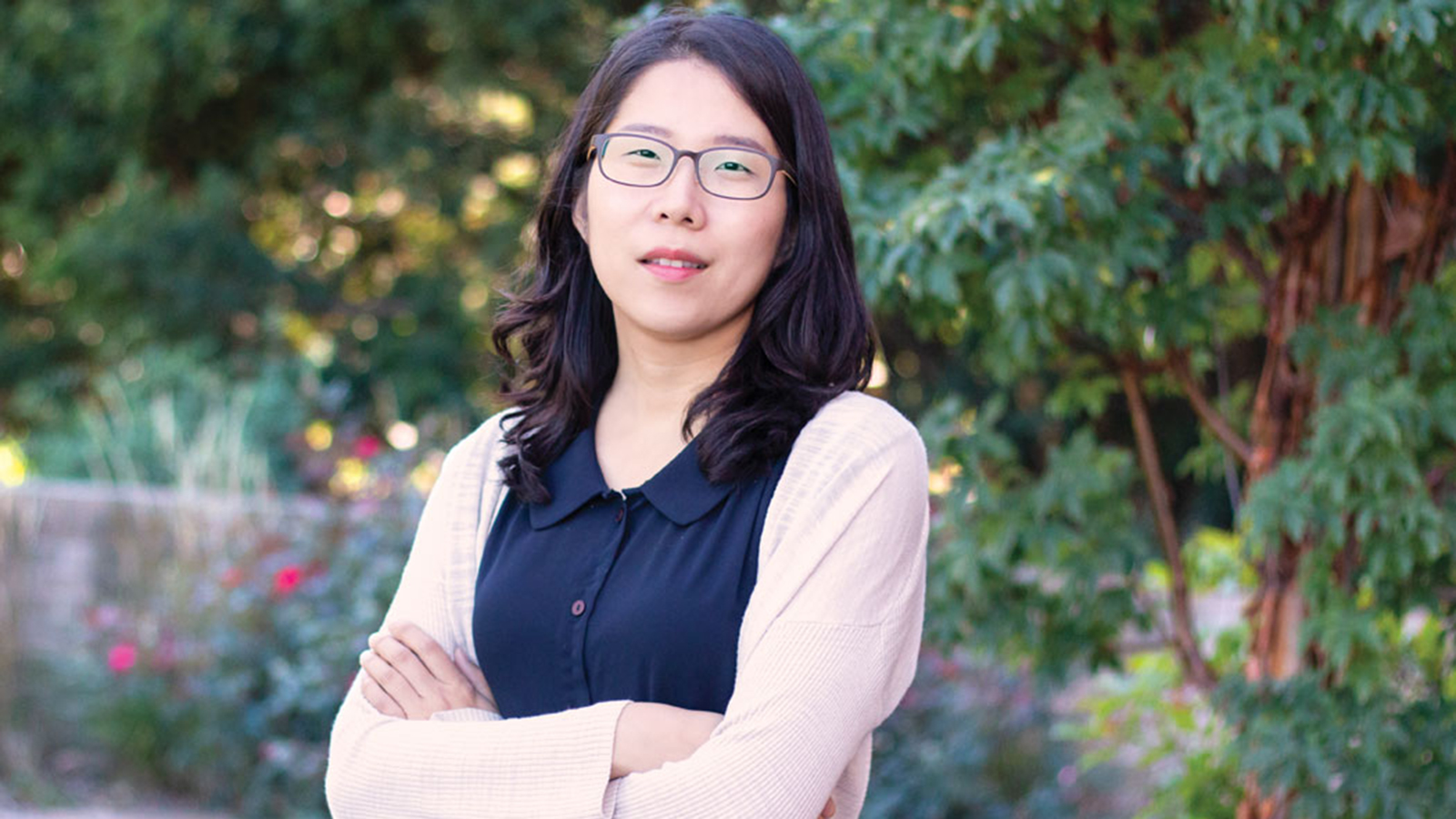
Research, teaching support help Jessica Namkung thrive at Nebraska
24 May 2021 By Kelcey Buck
Jessica Namkung knew she was interested in working with children, but it wasn’t until she was preparing for graduate school that she found her fit in special education research and practice.
Namkung, an assistant professor in special education and communication disorders, earned her bachelor’s degree in psychology and thought she was headed to a career in child clinical psychology. While visiting graduate programs in that area, however, she realized she wanted to find something more practical and applied. At the time, Namkung was working as an Applied Behavior Analysis (ABA) therapist, and her supervisor suggested looking into special education programs. She took that advice and headed to Vanderbilt University’s graduate program in special education.
After immigrating to the United States when she was 15 years old, Namkung was quickly recognized for her math skills. She tutored her friends in math, which eventually led to her taking a job as a math instructor at an after-school program for five years, teaching elementary through high school students struggling in math.
While in her graduate program, Namkung remembered her love for math and found her niche in researching learning difficulties in math.
“It was only after I was studying special education at Vanderbilt and taking a math method course for struggling students that reminded me how much I enjoyed teaching math and connected all the dots.”
Namkung completed both her master’s and Ph.D. at Vanderbilt, then spent two years as a faculty member at University at Albany – State University of New York before arriving at Nebraska. She credits her fellow faculty for making the move to Nebraska appealing to her.
“First and foremost, having great colleagues to collaborate with is amazing, and you can’t get that just anywhere,” Namkung said. “I appreciate that I have other faculty around me whom I can consult with about research and teaching. It is also motivating and stimulating to have such productive colleagues who are dedicated to their work.”
Namkung is currently working on two research projects, both looking at how math learning relates to cognition. She has a federal grant through the Institute of Education Sciences (IES) exploring cognitive and foundational factors that affect pre-algebra competence for students with and without math learning difficulties. The pandemic forced her to pause that research, but she’s hoping to get it restarted in the fall. In the meantime, she is also working on a meta-analysis examining concurrent and longitudinal relations between cognitive resources such as working memory, attention, processing speed and IQ, language, and math.
Namkung said she is grateful for the internal support at the university that has helped her advance in her career over the last five years. Her first research study was funded through a Layman Seed Grant, which eventually led to her receiving the IES grant. She also participated in the Peer Review of Teaching, which helped her revamp her course and get feedback about her teaching.
“There has been a lot of support for laying the foundations for my research and teaching. I have worked with colleagues in other departments and centers, such as Teaching, Learning and Teacher Education (TLTE); Child, Youth and Family Studies (CYAF); the Nebraska Center for Research on Children, Youth, Families and Schools (CYFS); and the Center for Science, Mathematics and Computer Education (CSMCE). Working with people outside of my own expertise helps me broaden my research and teaching, while also allowing me to learn from them.”
Namkung was recently promoted to associate professor and granted tenure, effective in August.
“Although promotion and tenure is a step/process in a long journey, not an end goal, it feels great that I am recognized for what I am doing.”
For Namkung, the long journey continues with goals of getting her research project running smoothly before writing another grant focused on developing math interventions for middle school students. She is also looking forward to mentoring her doctoral students interested in math learning difficulties.
Special Education and Communication Disorders